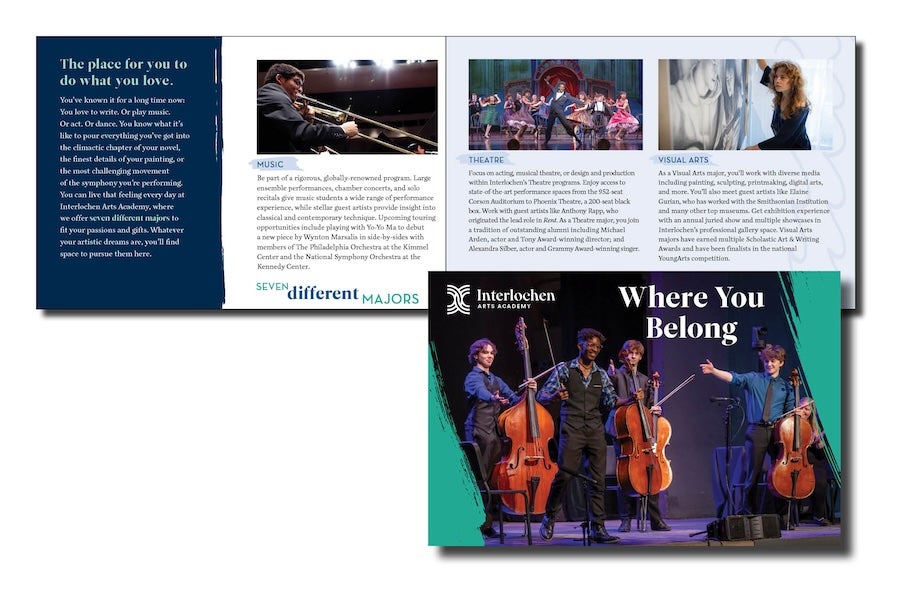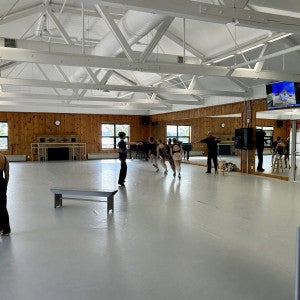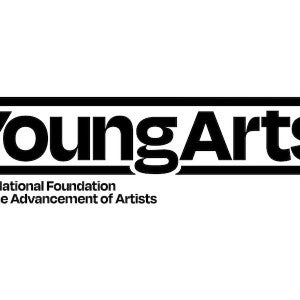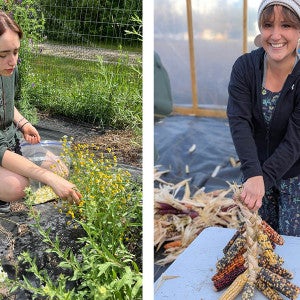The most unique boarding schools in the United States: A comprehensive guide
From a world-renowned arts institution to a Quaker-inspired farmstead, these unconventional boarding schools provide exceptional learning experiences while redefining what education can be.
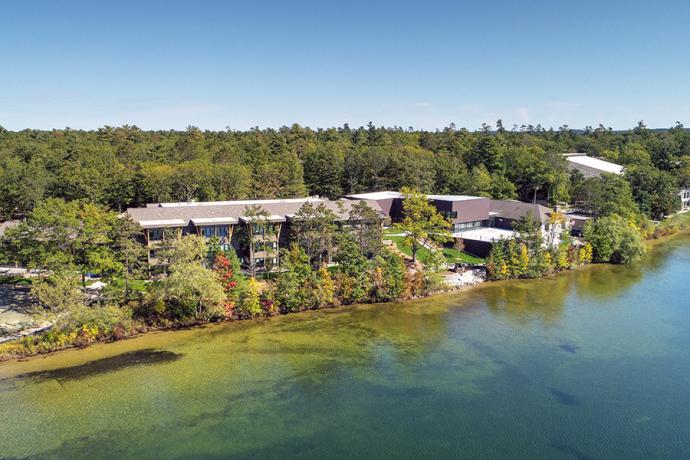
An aerial view of Interlochen Center for the Art's Dow House and the Dance Center.
Education isn’t a “one size fits all” journey. Every student is unique—and for many students, the traditional classroom setting might not be the optimal fit.
For families seeking alternative educational experiences, unique boarding schools offer environments where students can thrive academically while developing independence and pursuing specialized interests. These institutions stand apart from conventional schools through their distinctive curricula, awe-inspiring locations, innovative philosophies, or exceptional facilities.
What sets these remarkable boarding schools apart isn't just academic rigor—though that remains essential—but their commitment to holistic development through unconventional approaches. Whether focused on niche interests, nestled in wilderness settings, housed in historic structures, or designed with cutting-edge architecture, these schools provide immersive environments where learning extends far beyond textbooks.
Parents and students increasingly seek out these extraordinary educational options for various reasons: to nurture specific talents, address particular learning styles, build global citizenship, develop self-reliance, or simply experience education in a distinctive way. As educational priorities evolve and families recognize the benefits of specialized learning environments, these unique boarding schools continue to redefine what education can be.
What Makes a Boarding School Unique?
Innovative curriculum and teaching methods
The most distinctive boarding schools often reimagine the very foundation of education. Rather than adhering strictly to standardized curricula, these institutions pioneer pedagogical approaches like project-based learning, in which students tackle real-world challenges instead of memorizing facts for tests. Some implement Montessori principles at the secondary level, emphasizing self-directed learning and practical skills development.
Others have eliminated traditional grade levels entirely, allowing students to progress at their own pace through competency-based systems. Schools with integrated curriculums merge traditionally separate subjects—physics with engineering, history with literature, art with mathematics—creating cohesive learning experiences that reflect the interconnected nature of our world.
Many unique boarding schools embrace experiential education, where direct experience drives understanding. Students might manage sustainable farms, operate businesses, build structures, restore ecosystems, or conduct meaningful scientific research. This hands-on approach transforms abstract concepts into tangible realities, fostering deeper comprehension and retention.
Unusual locations
Location often forms the cornerstone of what makes certain boarding schools extraordinary. Some occupy waterfront campuses where the ocean becomes both classroom and teacher. Others operate in pristine wilderness settings where mountains, forests, and rivers provide daily lessons in environmental stewardship and personal resilience.
Schools established in historic buildings or monasteries blend classical education with architectural splendor and cultural immersion. Urban academies situated in global cultural capitals leverage city resources—museums, theatres, businesses, universities—as extensions of their campus.
Some truly adventurous programs have no fixed location at all—sailing vessels circumnavigating the globe, mobile campuses that migrate seasonally, or networks of international locations where students rotate throughout the academic year. In these settings, the journey itself becomes an essential educational component, teaching adaptability, cultural intelligence, and global perspective.
Special focus areas
Specialized boarding schools cultivate extraordinary talent and passion in specific domains. Arts-focused institutions provide pre-professional training for aspiring performers, visual artists, writers, and filmmakers, often with facilities rivaling professional venues and studios. STEM-centered schools feature advanced laboratories, makerspaces, and partnerships with research universities and technology companies.
Schools dedicated to environmental leadership immerse students in conservation work and sustainability practices. Language academies create full linguistic immersion, sometimes prohibiting English usage outside specific classes. Athletic academies integrate professional-level coaching and facilities with flexible academic schedules to support competitive development.
Entrepreneurial-focused schools teach business fundamentals through student-run enterprises and connections with industry mentors. Each specialized approach serves students with clear passions and aspirations, providing targeted resources that conventional schools typically cannot offer.
Historic or cultural significance
Some boarding schools distinguish themselves through rich histories and cultural significance. Centuries-old institutions carry forward educational traditions while adapting to contemporary needs. Schools founded on specific philosophical, religious, or cultural principles create distinctive communities centered around shared values and practices.
Institutions established by notable historical figures or pioneering educators embody unique educational philosophies. Some schools specifically preserve and transmit cultural heritage—Indigenous knowledge systems, traditional arts, endangered languages, or classical studies—creating learning environments deeply rooted in cultural context.
These historically or culturally significant schools offer not just education, but connection to lineages of knowledge and tradition that extend beyond individual achievement to questions of identity, purpose, and belonging.
The most unique boarding schools in the United States
Where art, academics, and nature intersect: Interlochen Arts Academy
Located on a picturesque 1,200-acre campus in northern Michigan, Interlochen Arts Academy is one of the world's premier fine arts boarding schools. Founded in 1962 as an extension of the renowned Interlochen Center for the Arts, this institution serves grades 9-12 and post-graduate students who demonstrate exceptional talent in music, theatre, dance, visual arts, creative writing, film, or interdisciplinary arts. What truly distinguishes Interlochen is its dual commitment to pre-professional arts training and college-preparatory academics. Students typically spend mornings in academic classes and afternoons immersed in their artistic disciplines, working with faculty who are often accomplished professional artists themselves. The campus features world-class facilities including multiple theatres, concert halls, recording studios, dance studios, and specialized visual arts spaces.
The school's list of alumni read like a “who's who” across artistic disciplines. Beyond its famous graduates, Interlochen's transformative environment allows young artists to find their creative voice while living among equally passionate peers—an experience students consistently describe as life-changing.
The STEM pioneer: North Carolina School of Science and Mathematics
Established in 1980 as the nation's first public residential high school focused on STEM education, the North Carolina School of Science and Mathematics (NCSSM) in Durham has developed into one of America's most innovative educational institutions. This tuition-free public boarding school serves academically talented juniors and seniors from across North Carolina, offering an unparalleled depth of curriculum in mathematics, computer science, engineering, and the natural sciences.
What distinguishes NCSSM is not just its advanced coursework, but its research-based educational model. Students conduct original research alongside faculty mentors and through partnerships with nearby research universities, biotech companies, and Research Triangle Park institutions. The curriculum includes specialized courses rarely found at the secondary level—quantum mechanics, genomics, artificial intelligence, multivariable calculus, and organic chemistry—taught at near-college levels.
The school's unique "mentorship" and "research in chemistry/physics/biology" programs place students in professional research environments where they contribute to ongoing scientific investigations. Campus facilities include specialized laboratories for robotics, biotechnology, nanotechnology, and advanced computing. This immersive STEM ecosystem prepares graduates not just as science and mathematics consumers but as innovation contributors—with alumni going on to earn patents, publish research, and develop breakthrough technologies at rates far exceeding typical high school graduates.
A working farm with a progressive vision: The Putney School
Established in 1935 on a working dairy farm in Vermont, The Putney School pioneered a progressive approach to education that balances intellectual rigor with practical skills, arts, and physical labor. The school's founder, Carmelita Hinton, envisioned an educational community where students would learn "to work with their hands as well as their heads," a philosophy that continues to guide the school today.
Students engage in a full college-preparatory curriculum while also participating in the school's work program—maintaining farm operations, splitting firewood for heating buildings, working in the gardens that supply the kitchen, and managing other essential campus functions. This labor is not framed as punishment or even chores, but as integral to the educational philosophy, teaching self-reliance and connection to physical systems that support daily life.
Putney's emphasis on the arts is equally distinctive, with all students participating in music, visual arts, and theatre regardless of prior experience or perceived talent. The campus functions as a laboratory for sustainable practices, with student-built solar arrays, farm-to-table dining, and green building projects. This integration of intellectual pursuit, artistic expression, and meaningful physical work creates graduates with unusual resourcefulness and perspective.
Meditation for young minds: The Maharishi School
Located in Fairfield, Iowa, the Maharishi School offers a truly alternative approach to education. Based on transcendental meditation practices and principles developed by Maharishi Mahesh Yogi, the school integrates meditation directly into the daily schedule, with students practicing transcendental meditation twice daily to develop consciousness as a foundation for effective learning and living.
The academic program follows college-preparatory standards but frames subjects through the lens of "consciousness-based education," exploring connections between traditional disciplines and principles of natural law. Students study the Science of Creative Intelligence alongside conventional subjects, examining how fundamental patterns of intelligence express across different fields.
Beyond its meditation focus, the school emphasizes sustainable living, with an award-winning school garden, solar-powered facilities, and organic vegetarian meals. Students consistently demonstrate exceptional academic outcomes, with achievements in national science, arts, and academic competitions that far exceed what might be expected from the school's size. This educational approach, focusing on developing inner consciousness alongside external knowledge, creates a truly distinctive learning environment.
Horses, outdoor adventure, and education: The Thacher School
Founded in 1889 in the Ojai Valley of California, The Thacher School combines rigorous academics with a mandatory horse program that has defined its distinctive approach for over a century. Each freshman is assigned a horse for the year, taking full responsibility for its care, feeding, grooming, and exercise—regardless of prior equestrian experience.
This horse program serves as a cornerstone of the school's character education, teaching responsibility, humility, and partnership with animals. Students learn to prioritize another being's needs above their own convenience, developing habits of conscientiousness that transfer to other areas of school life. Beyond daily horse care, students participate in trail rides, gymkhanas, and pack trips into the surrounding Los Padres National Forest.
The school's outdoor program extends this experiential learning, with regular camping trips, rock climbing expeditions, and a senior wilderness survival solo experience. Located on 427 acres of foothills with spectacular mountain views, the campus environment itself fosters connection to nature. This combination of intellectual challenge, equestrian responsibility, outdoor adventure, and close community creates a uniquely formative educational experience.
Simplicity and self-reliance: Midland School
Nestled on 2,860 acres of ranch land near California's Santa Ynez Valley, Midland School has operated since 1932 with a mission centered on self-reliance, simplicity, and environmental stewardship. This college-preparatory school for grades 9-12 deliberately maintains minimal infrastructure and technology, creating an educational experience focused on essential skills and direct connection to place.
Students and faculty at Midland participate in all aspects of campus maintenance—growing a significant portion of their food, managing livestock, cutting firewood for heating, and handling basic building repairs. The school's "jobs program" assigns every student responsibilities that directly contribute to community operations. This hands-on approach extends to academics, where courses integrate the ranch setting through field research, land management projects, and practical problem-solving.
What truly distinguishes Midland is its intentional simplicity—students live in rustic cabins without electricity, cell phone use is restricted, and campus life follows natural rhythms of daylight and seasons. The 10:1 student-teacher ratio allows for personalized mentoring and guidance through this unique educational model. Graduates develop uncommon independence, practical capabilities, and environmental consciousness rarely found in conventional educational settings.
The ultimate athletic talent incubator: IMG Academy
Located on a 600-acre campus in Bradenton, Florida, IMG Academy represents perhaps the most comprehensive athletic development environment available at the secondary level. Originally founded as a tennis academy by coaching legend Nick Bollettieri in 1978, IMG has expanded into a multi-sport boarding school that combines elite athletic training with college-preparatory academics for students in grades 6-12 and post-graduates. What truly distinguishes IMG is its professional-grade training infrastructure. The campus features 50+ tennis courts, multiple golf courses, a 5,000-square-foot weight room, covered turf training areas, multiple sport-specific stadiums, and recovery facilities including hydrotherapy pools and dedicated physical therapy spaces. Students specialize in one of eight sports (baseball, basketball, football, golf, lacrosse, soccer, tennis, or track & field), training daily with coaches who often have professional or Division I collegiate coaching experience.
Beyond sport-specific training, students receive personalized development in athletic performance (strength, speed, agility), mental conditioning (focus, resilience, visualization), leadership training, and sports nutrition. Academic schedules flex around training demands, with block scheduling and evening study halls accommodating competition travel. This comprehensive approach has produced hundreds of collegiate athletes, Olympic medalists, professional draft picks, and Grand Slam champions—establishing IMG as perhaps the ultimate incubator for athletic talent in America.
Second chances in the Colorado Rockies: Eagle Rock School
Founded in 1993 with funding from the American Honda Education Corporation, Eagle Rock School in Estes Park, Colorado offers a tuition-free residential program specifically designed for students who have struggled in conventional educational settings. This year-round program serves approximately 75 students aged 15-21 who commit to the school's principles of personal growth, intellectual engagement, and community contribution.
Eagle Rock's distinctive educational model eliminates traditional grade levels in favor of individualized learning plans and demonstration-based assessment. Students progress through requirements at their own pace, with graduation based on demonstrated mastery rather than time spent. The curriculum emphasizes project-based learning, with courses designed around essential questions and real-world applications rather than subject-area silos.
The school's mountain setting provides opportunities for outdoor adventure education, with regular wilderness experiences integrated throughout the program. All students participate in daily "morning gatherings," community service, and house-based responsibilities. This comprehensive approach to education—addressing academic, social-emotional, and physical development—has proven effective for students who found little success in traditional school environments.
The living classroom in rural Connecticut: Pomfret School
Set among 500 acres of Connecticut countryside, Pomfret School has transformed traditional boarding school education through its innovative "Project: Pomfret" program. This initiative integrates immersive, project-based learning blocks throughout the academic calendar, allowing students to explore topics ranging from food systems to sustainable design, wildlife conservation to social justice—all within the context of the school's extensive campus resources.
What makes Pomfret particularly distinctive is its "Living Classroom" approach, which utilizes the campus as a laboratory for environmental studies. Students monitor forest succession in designated research plots, manage sustainable agriculture operations, conduct water quality studies in campus waterways, and implement renewable energy initiatives. The school's greenhouse, weather station, astronomical observatory, and forest trails provide infrastructure for authentic scientific inquiry.
Beyond environmental programming, Pomfret's IDEA Lab serves as an innovation hub where students develop entrepreneurial projects and technological solutions. The school's proximity to both Boston and New York City facilitates partnerships with universities and research institutions, extending learning beyond campus boundaries while maintaining the benefits of a rural residential community.
Quaker simplicity in rural Iowa: Scattergood Friends School
Founded in 1890 as a Quaker boarding school, Scattergood Friends School operates on 126 acres of prairie and farmland in rural Iowa. This intentionally small community of approximately 40 students and 15 staff members practices educational principles rooted in Quaker values: simplicity, peace, integrity, community, equality, and stewardship.
The school's working farm forms a central component of both educational programming and daily life. Students participate in all aspects of agricultural operations—planting and harvesting crops, managing livestock, processing food for the school kitchen, and maintaining farm infrastructure. Nearly 60% of food consumed on campus comes from the school's organic farming operations, creating direct connections between students' work and community sustenance.
Beyond farm responsibilities, Scattergood maintains distinctive community practices including daily "Collection" (silent reflection in the Quaker tradition), consensus-based decision-making, and weekly all-school meetings where community concerns are addressed collectively. Academic courses maintain college-preparatory rigor while incorporating Quaker values and experiential learning. This combination of intellectual engagement, practical work, and intentional community creates a rare educational environment focused on developing the whole person rather than merely academic achievement.
How to choose the right unique boarding school
Academic considerations
While unique features might initially attract interest, academic quality remains paramount when selecting a boarding school. Consider whether the curriculum prepares students for their next educational steps—whether that's highly selective universities, specialized arts conservatories, or alternative higher education paths. Review standardized test results, college matriculation lists, and academic offerings in areas relevant to your student's interests and goals.
Look beyond marketing materials to understand teaching methods, class sizes, faculty qualifications, and available support services. For students with specific learning needs, investigate accommodations and specialized resources. The most distinctive educational environment still must deliver solid academic preparation appropriate to your student's aspirations.
Cultural fit and community values
Each unique boarding school cultivates its own culture and community values. Some emphasize intellectual debate and academic intensity; others prioritize creative expression, environmental stewardship, or intercultural understanding. Consider whether these values align with your family's priorities and your student's temperament.
Visit campuses whenever possible to observe community dynamics firsthand. Pay attention to how students interact with each other and with adults, what behaviors are celebrated, and how the community manages conflicts or challenges. For schools in remote locations or with unusual structures (like sailing schools or nomadic programs), carefully assess whether your student would thrive in these environments.
Practical considerations
Logistics matter significantly when evaluating boarding school options. Consider:
- Geographic location and travel requirements
- Total costs beyond tuition (travel expenses, special equipment, additional fees)
- Calendar structure and vacation periods
- Communication policies and technology access
- Health and safety protocols
- Religious affiliations or requirements
- Availability of financial aid or scholarships
For specialized schools, realistically evaluate your student's level of interest and commitment. A wilderness school might sound appealing in concept but prove challenging for a student who strongly prefers urban environments. Similarly, an arts-intensive program requires genuine passion for the discipline—not just casual interest.
Application strategy
Many unique boarding schools maintain highly selective admissions processes. Start researching options early—ideally beginning in the spring or summer before application year. Understand each school's specific requirements, which might include standardized testing, portfolio submissions, auditions, interviews, or specialized essays.
When possible, demonstrate genuine interest through campus visits, attendance at virtual events, or communication with admissions representatives. For specialized programs, highlight relevant experiences and accomplishments that demonstrate readiness for the school's particular educational approach.
Conclusion
The landscape of unique boarding schools offers extraordinary possibilities for students seeking education beyond conventional boundaries. These institutions demonstrate that meaningful learning happens in many contexts—in the classroom, on the tennis court, in the practice room, or on the trail. Their success challenges assumptions about what education must look like and where it must occur.
What unites these diverse schools is their commitment to intentional educational communities where students develop not just academic knowledge but essential qualities like resilience, creativity, cultural understanding, environmental stewardship, and purposeful engagement. In a rapidly changing world that demands adaptability and innovative thinking, these educational models offer valuable preparation.
For families considering these options, the search process itself becomes educational—prompting important conversations about values, goals, and approaches to learning. While not every student will thrive in these unconventional environments, those who find the right match often describe their boarding school experience as transformative, shaping their identity and direction long after graduation.
If you're intrigued by these possibilities, begin exploring specific schools that align with your student's interests and learning style. Reach out directly to admission offices, connect with current students or alumni, and when possible, experience these remarkable communities firsthand. The right educational environment can unlock potential in ways neither students nor parents might have imagined possible.
Dive deeper into Interlochen Arts Academy with a free digital viewbook
